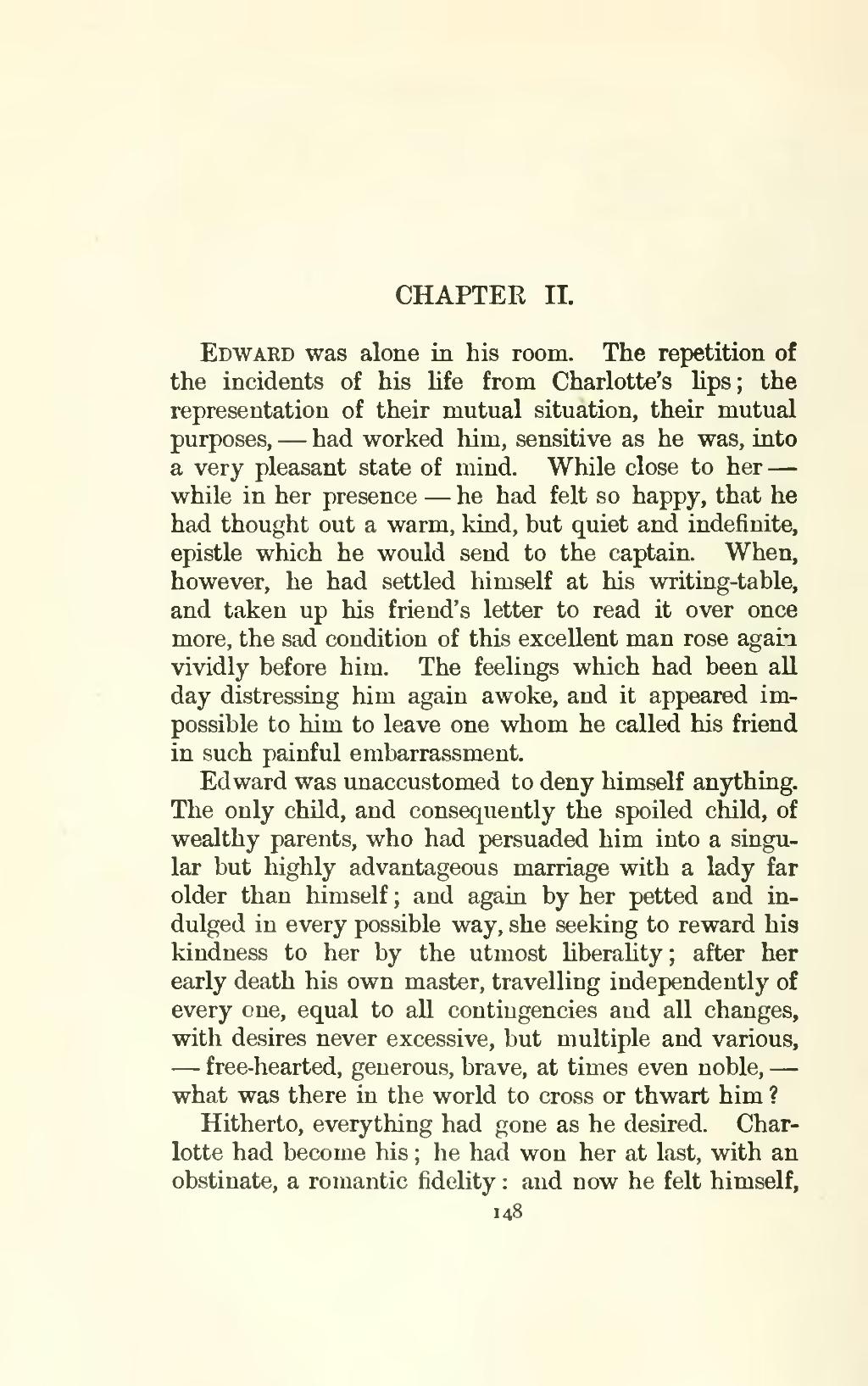CHAPTER II.
Edward was alone in his room. The repetition of the incidents of his life from Charlotte's lips; the representation of their mutual situation, their mutual purposes,—had worked him, sensitive as he was, into a very pleasant state of mind. While close to her—while in her presence—he had felt so happy, that he had thought out a warm, kind, but quiet and indefinite, epistle which he would send to the captain. When, however, he had settled himself at his writing-table, and taken up his friend's letter to read it over once more, the sad condition of this excellent man rose again vividly before him. The feelings which had been all day distressing him again awoke, and it appeared impossible to him to leave one whom he called his friend in such painful embarrassment.
Edward was unaccustomed to deny himself anything. The only child, and consequently the spoiled child, of wealthy parents, who had persuaded him into a singular but highly advantageous marriage with a lady far older than himself; and again by her petted and indulged in every possible way, she seeking to reward his kindness to her by the utmost liberality; after her early death his own master, travelling independently of every one, equal to all contingencies and all changes, with desires never excessive, but multiple and various,—free-hearted, generous, brave, at times even noble,—what was there in the world to cross or thwart him?
Hitherto, everything had gone as he desired. Charlotte had become his; he had won her at last, with an obstinate, a romantic fidelity: and now he felt himself,
148
